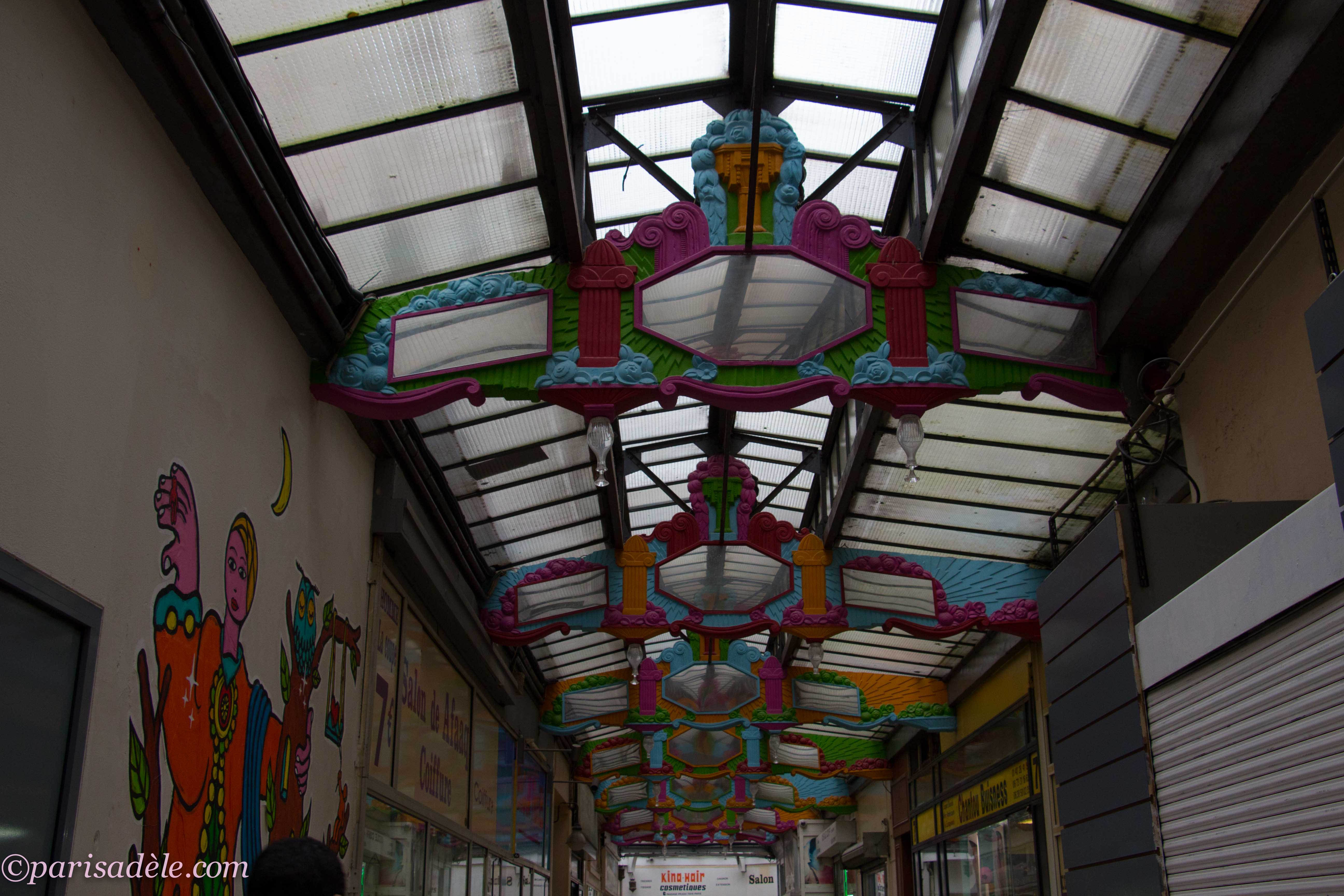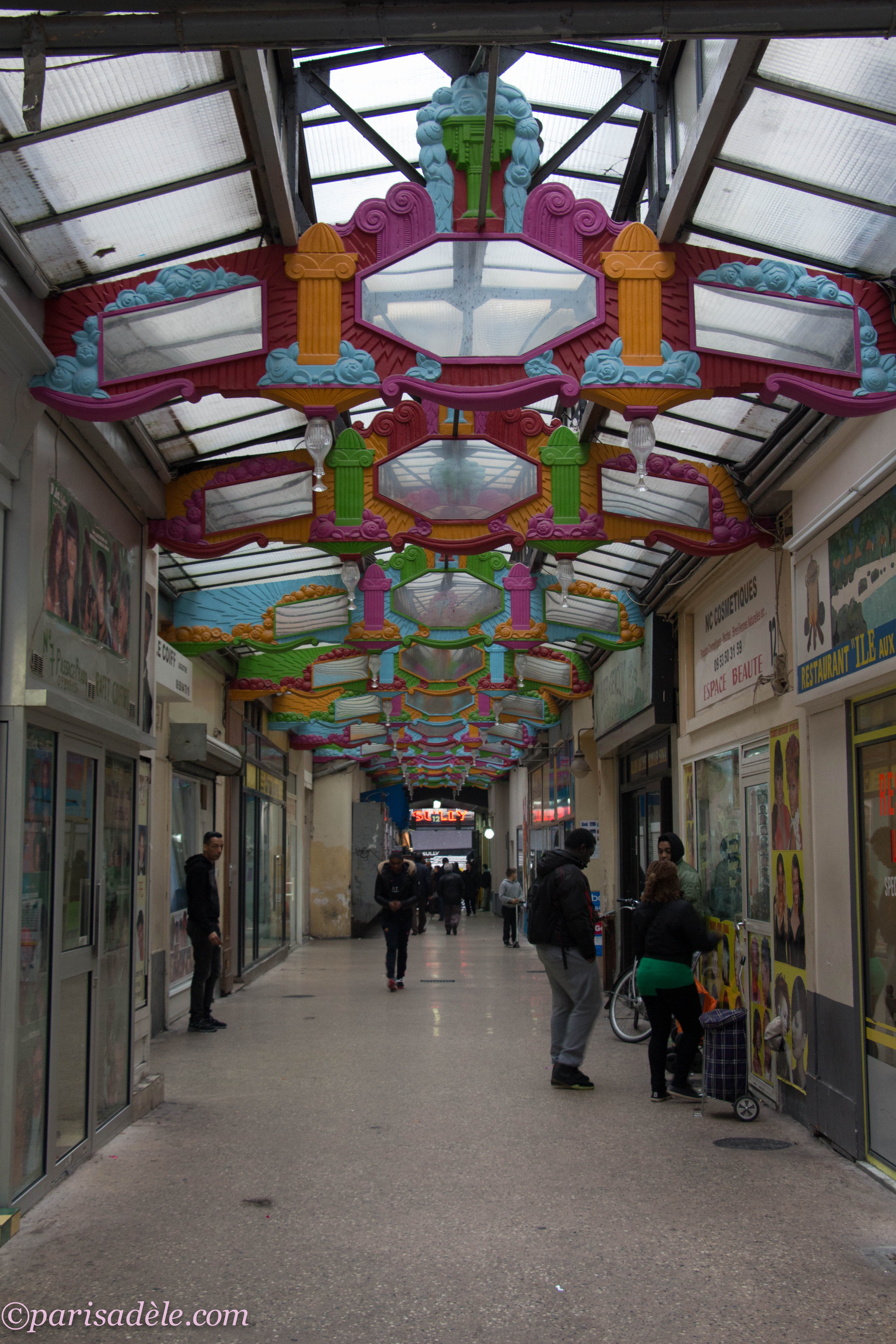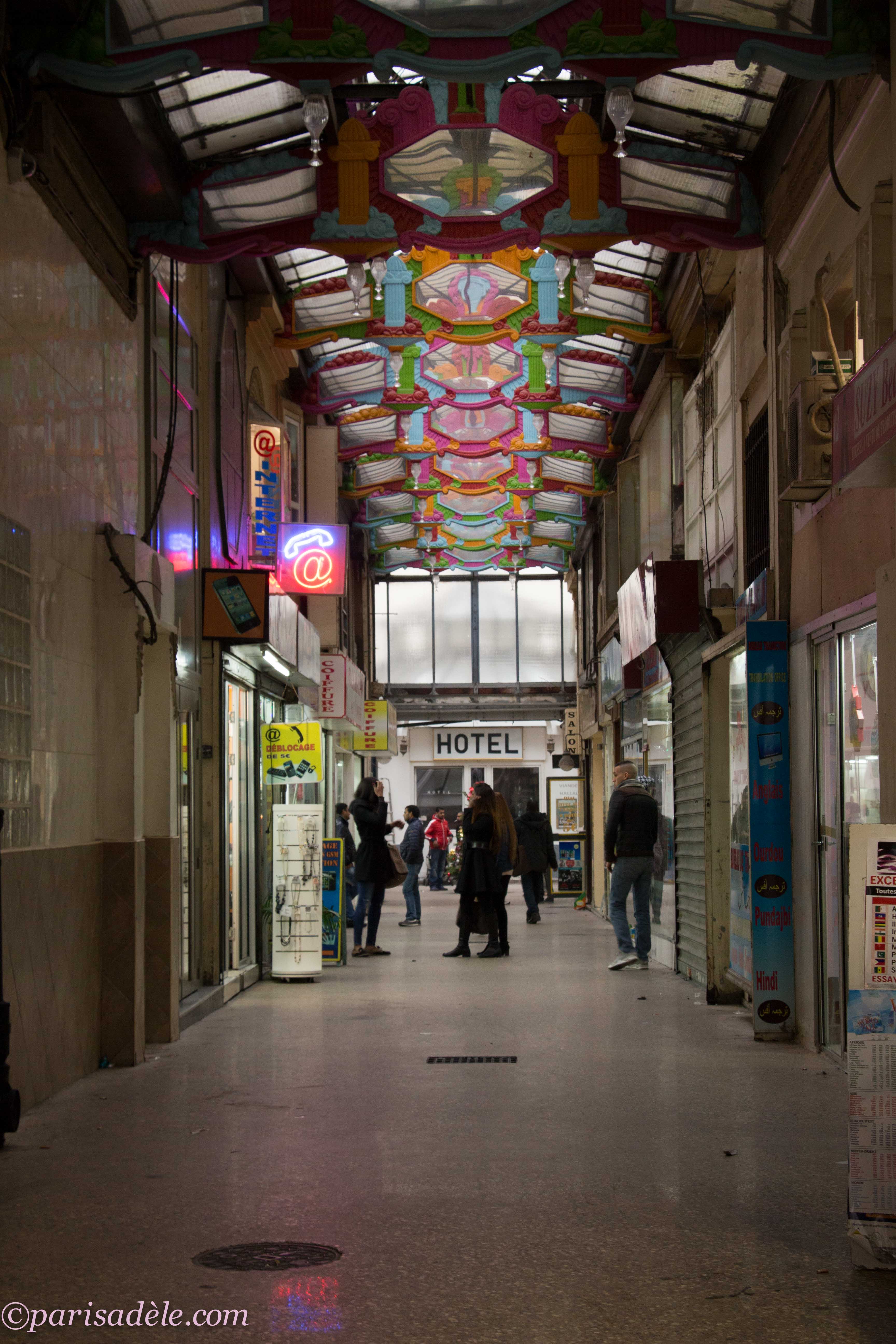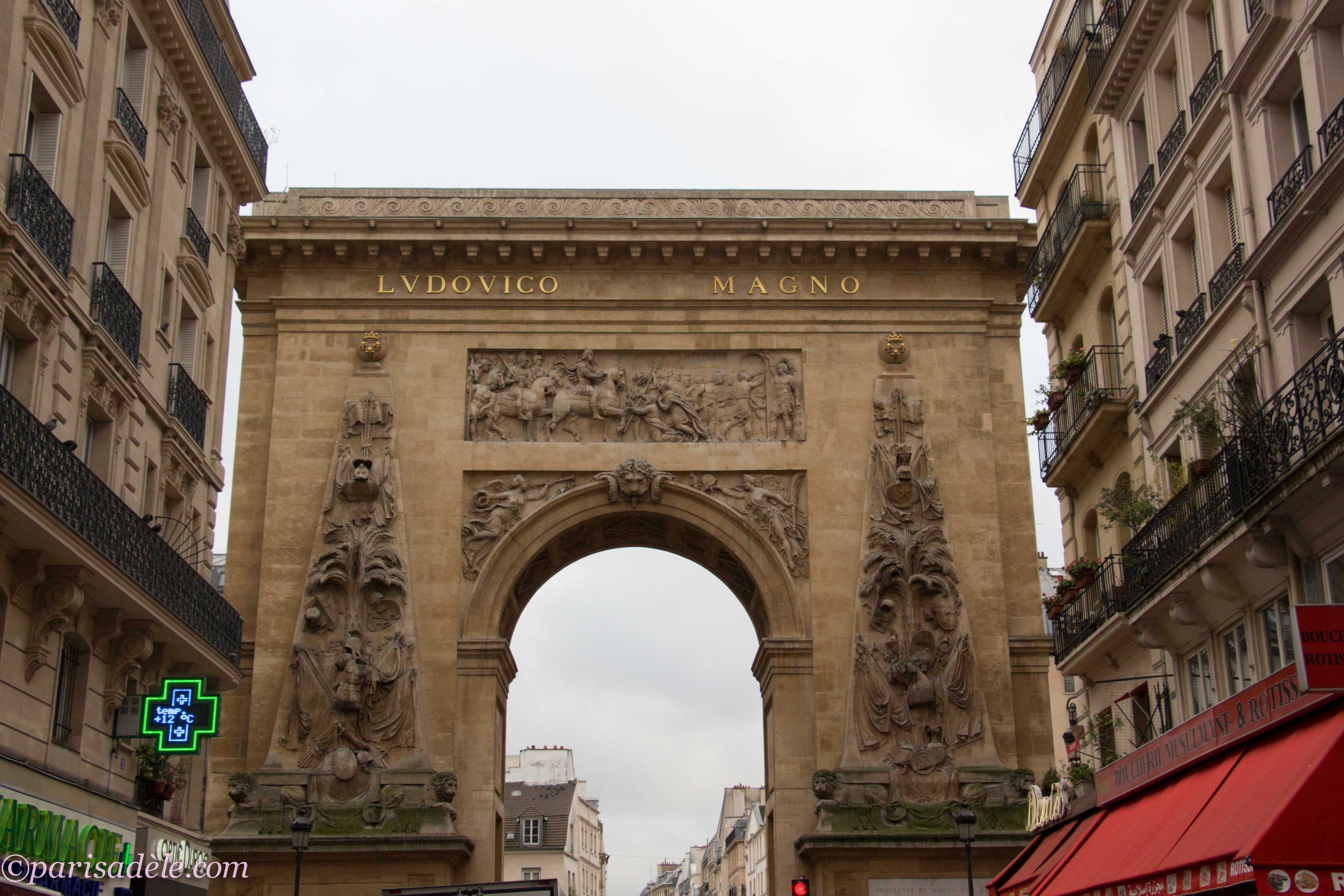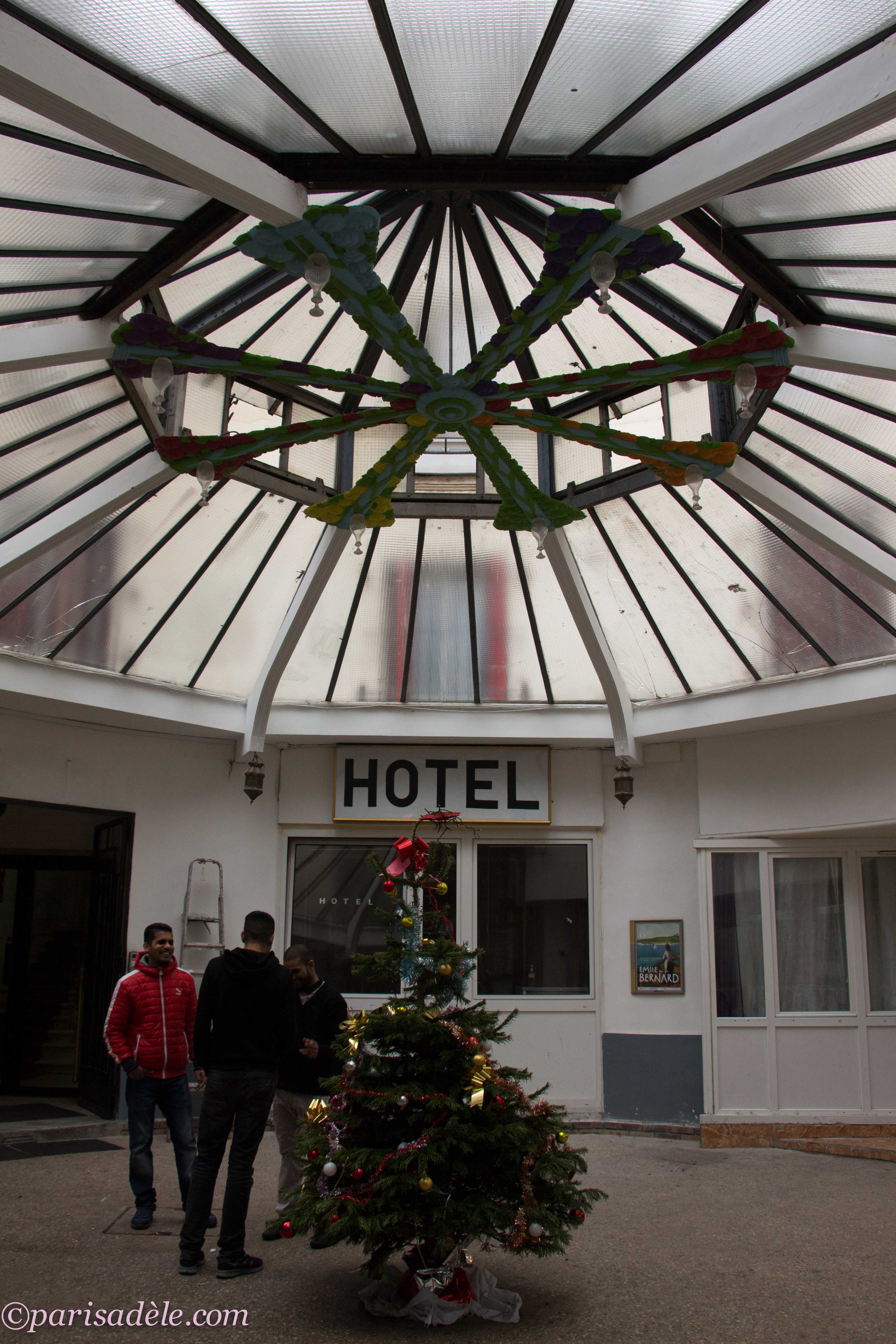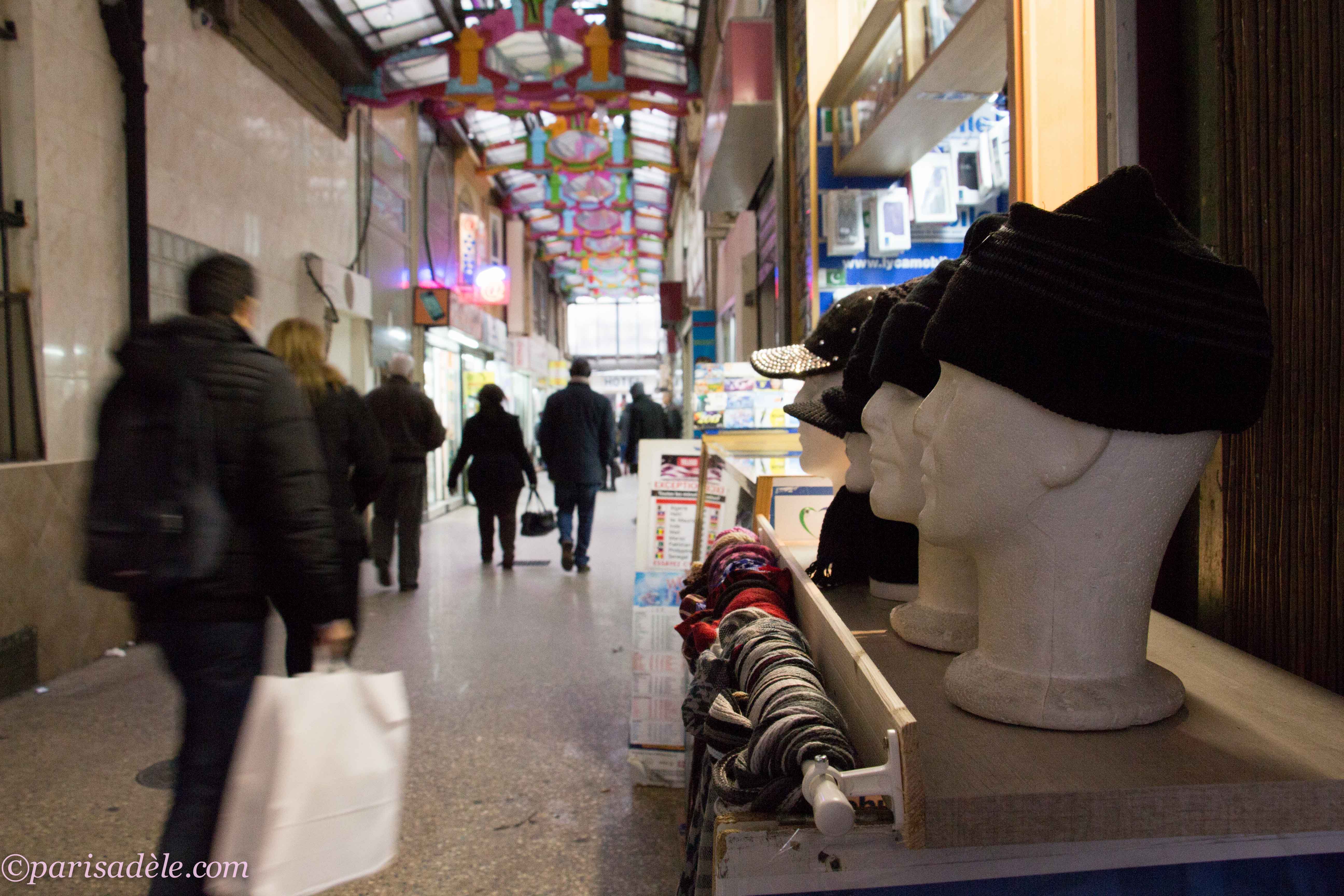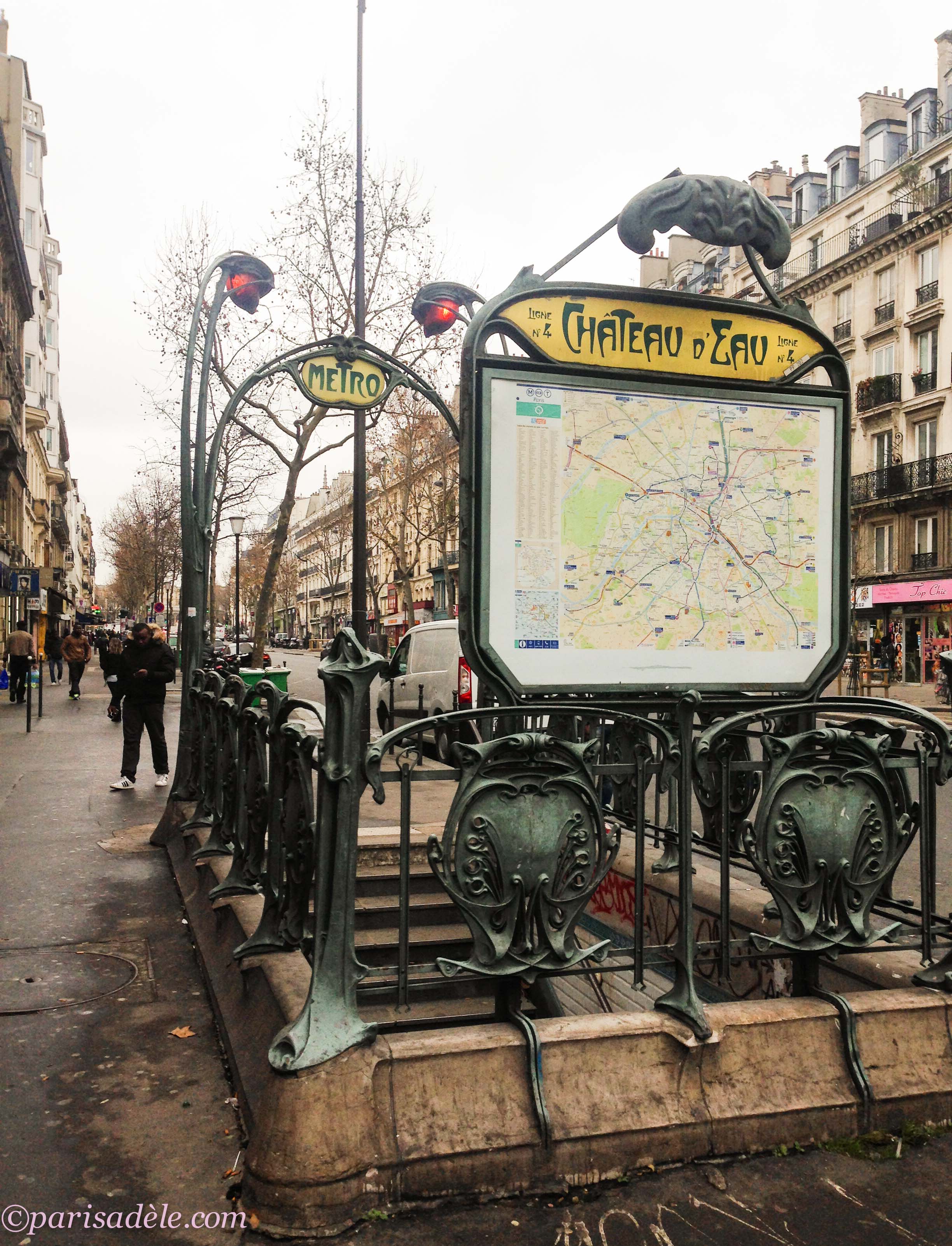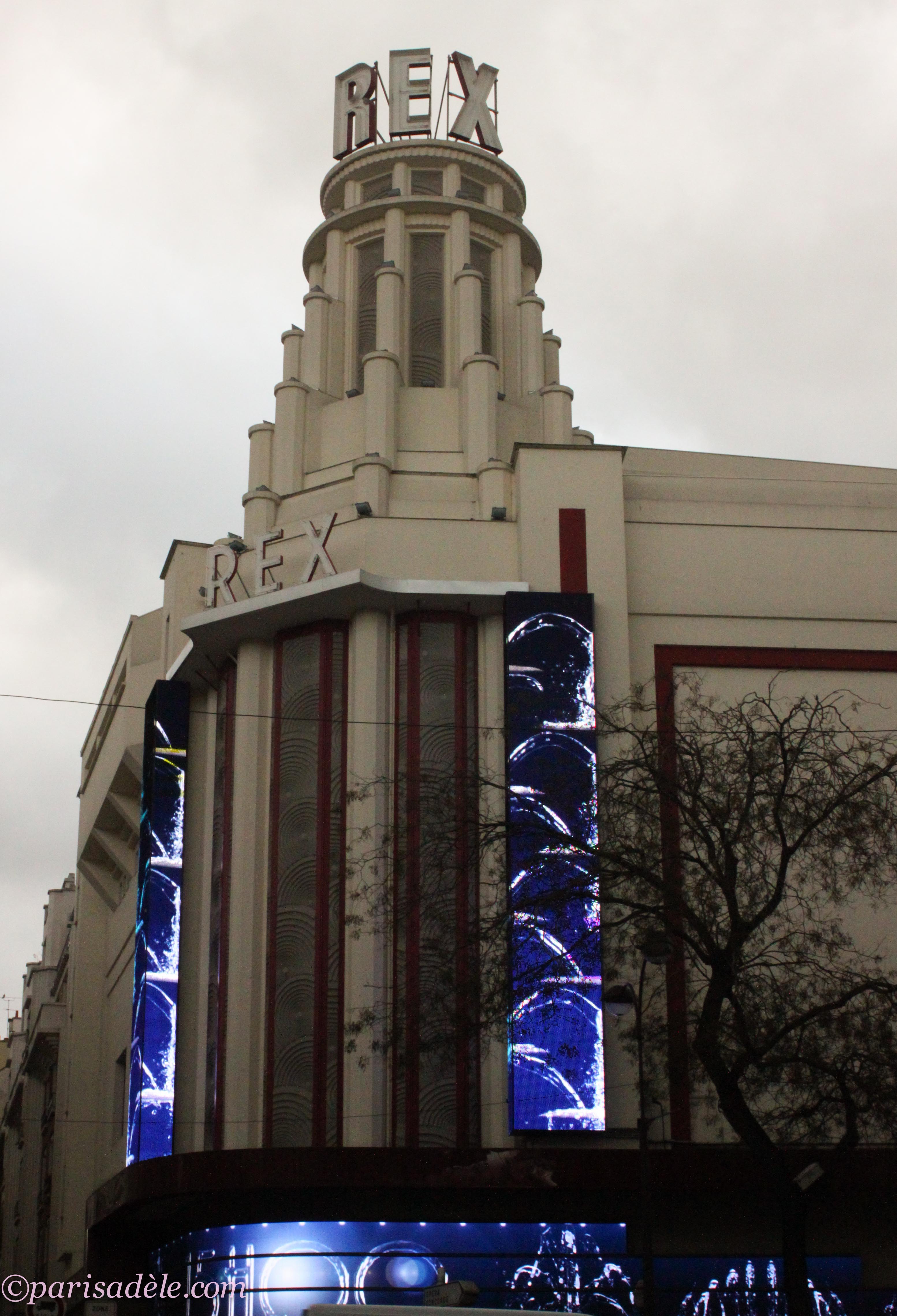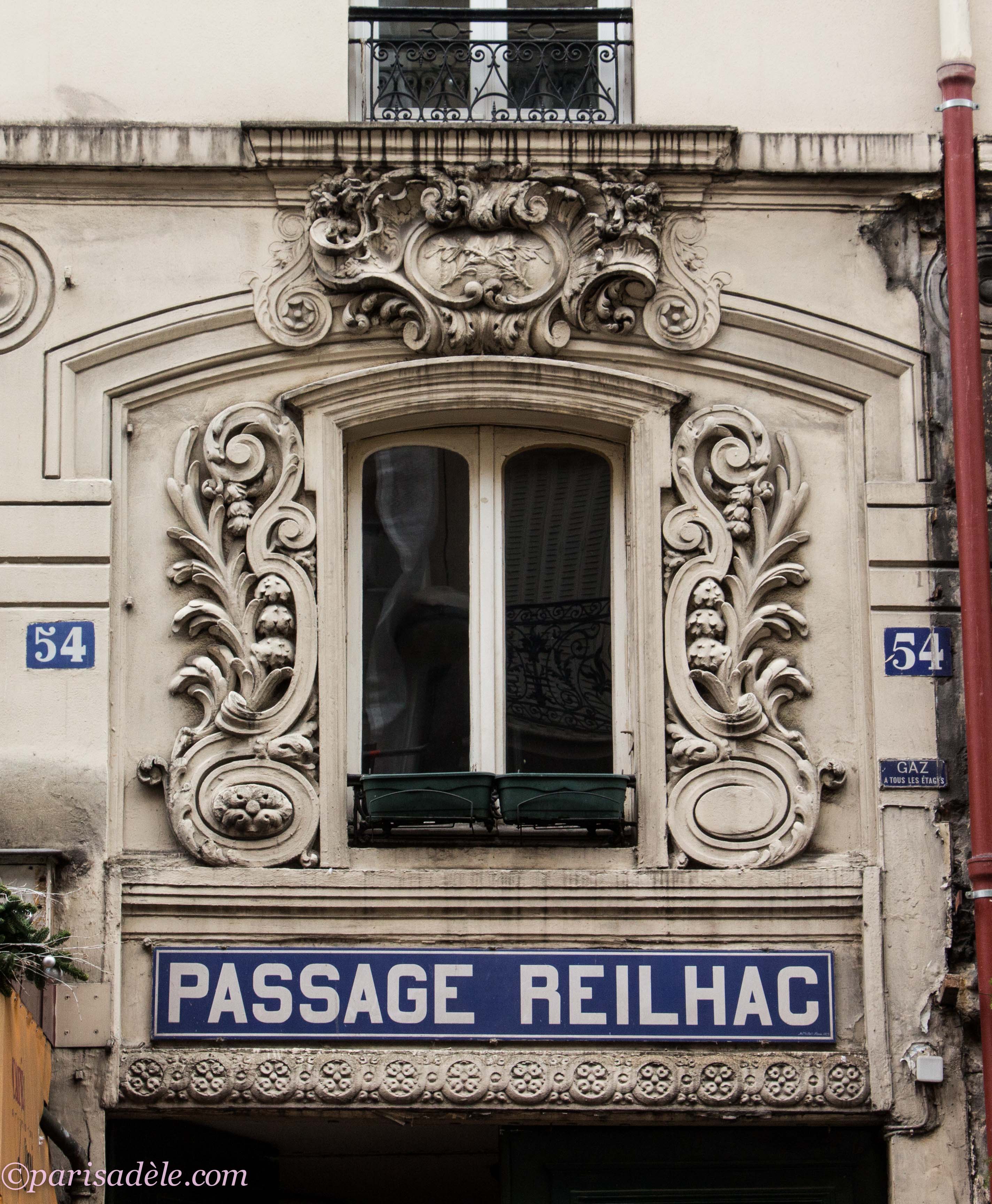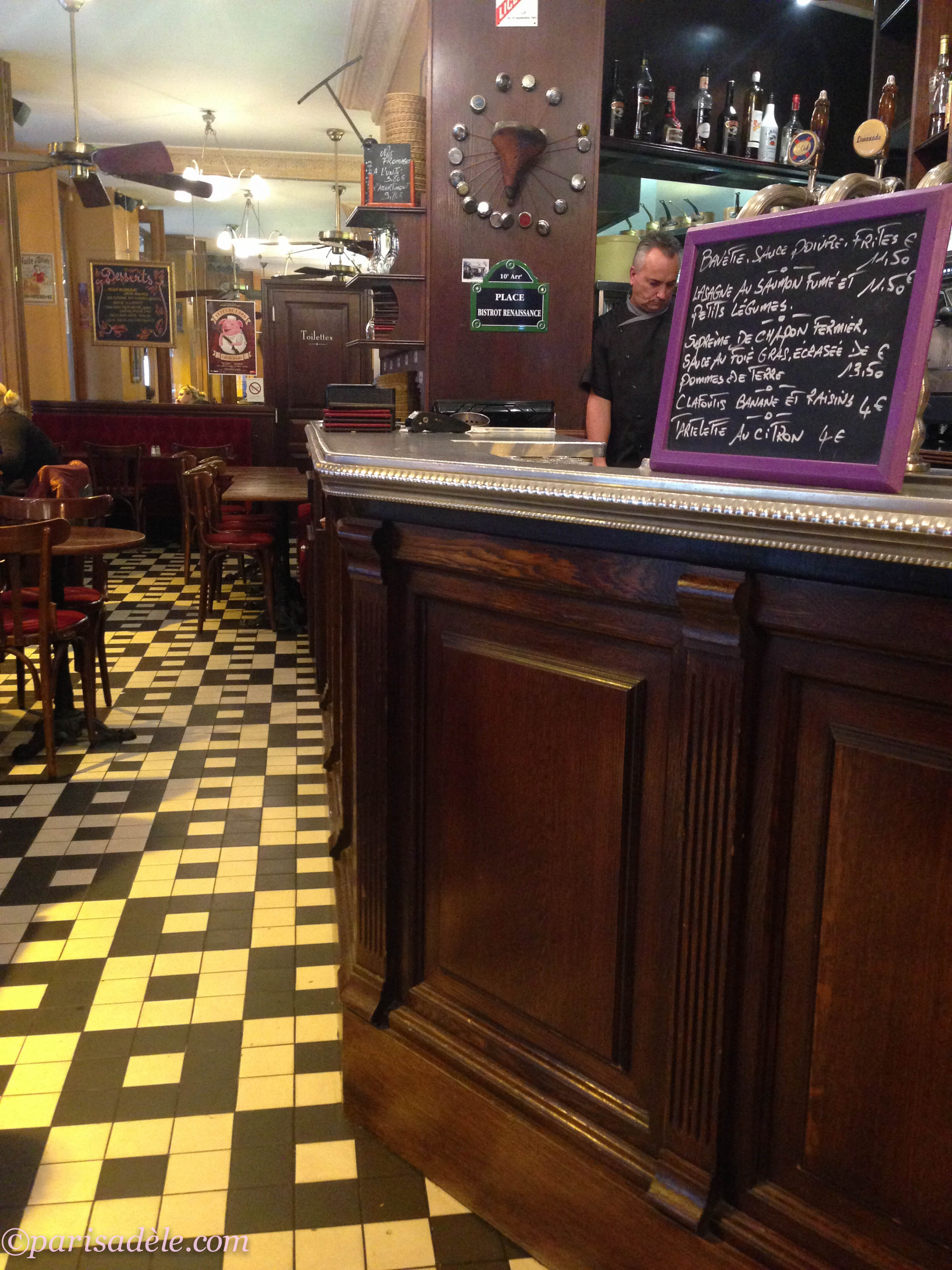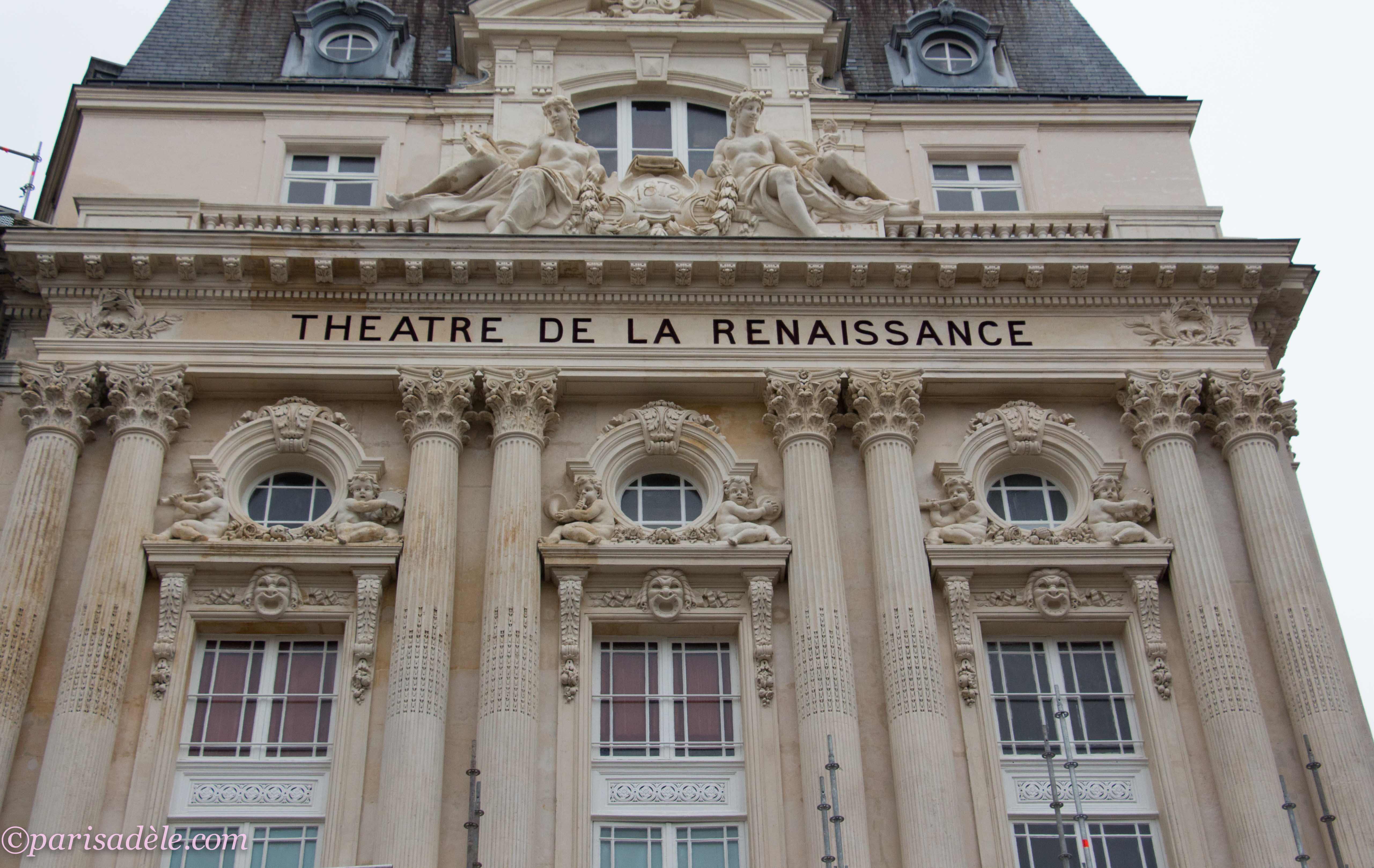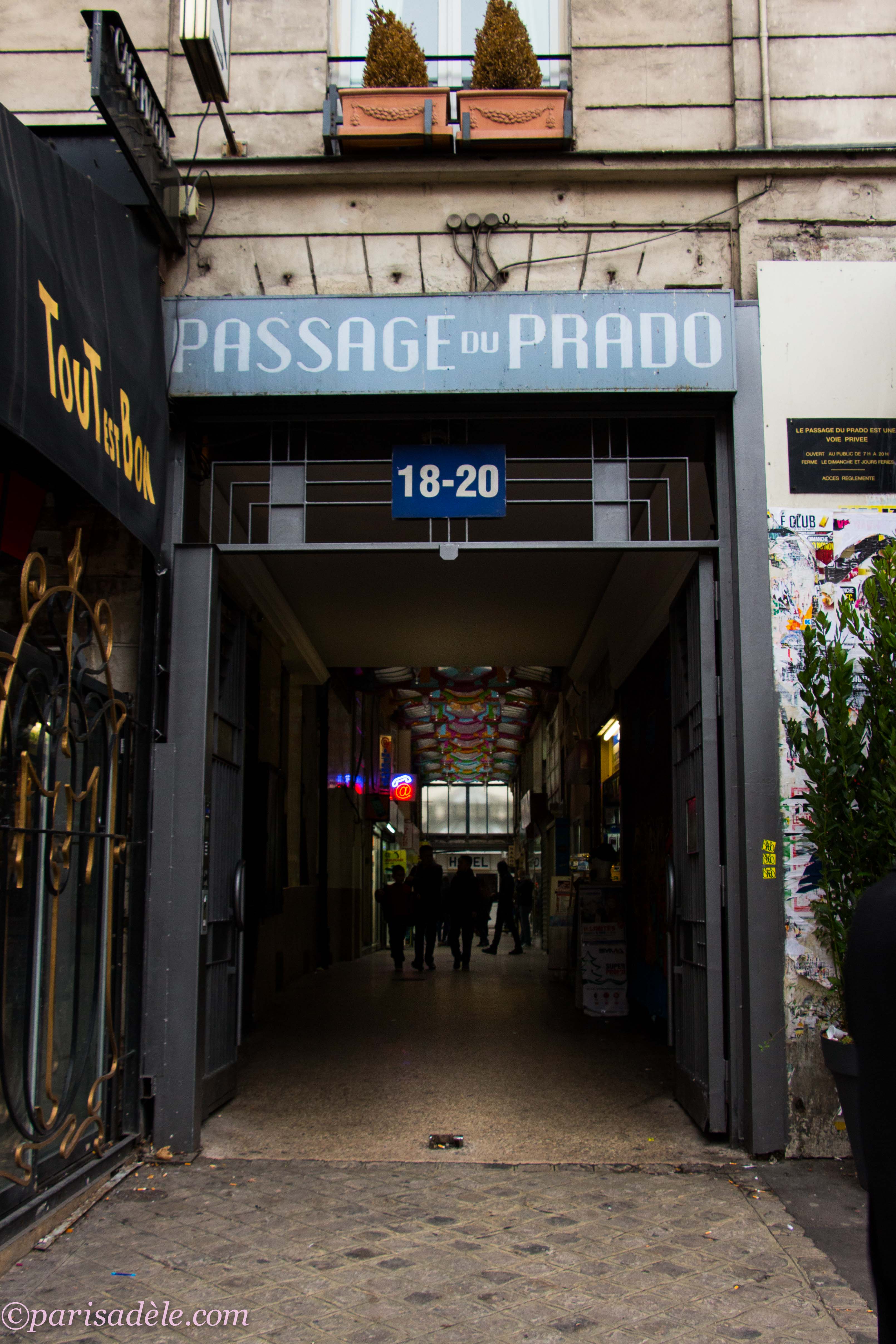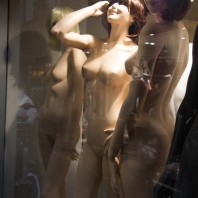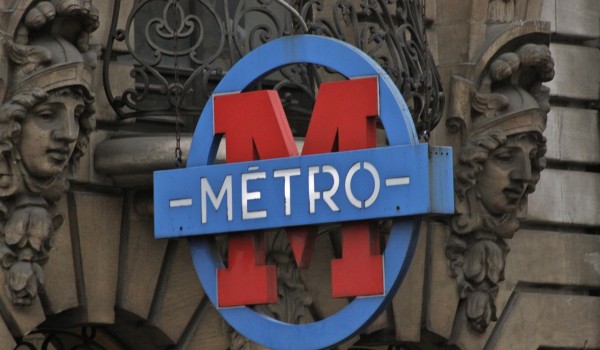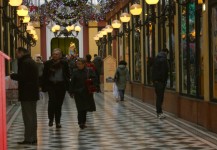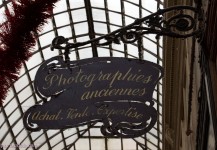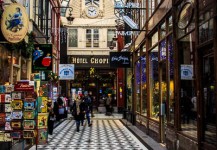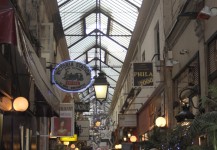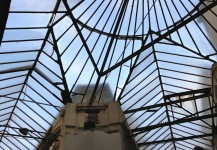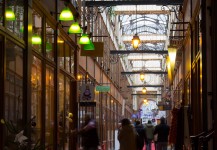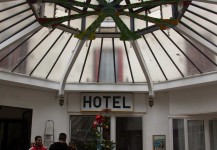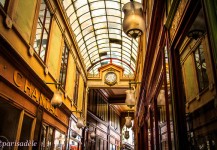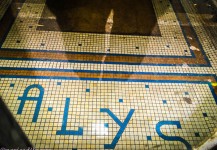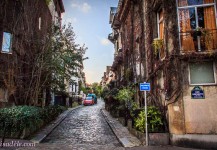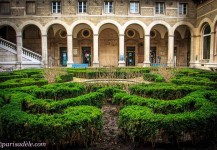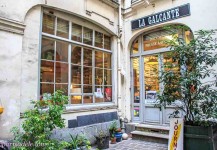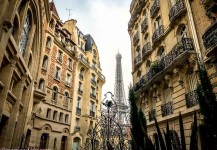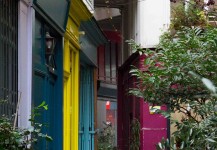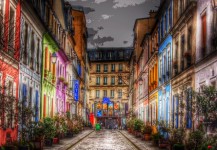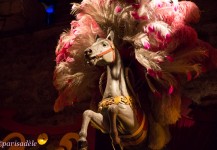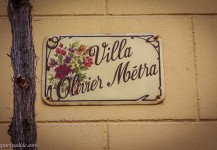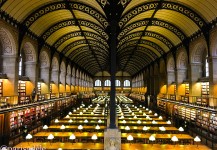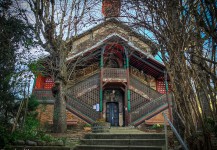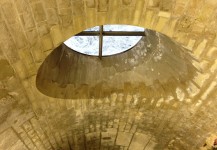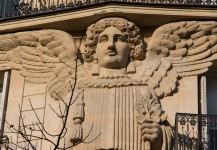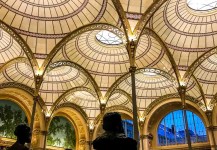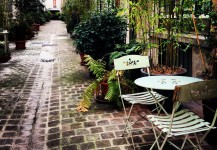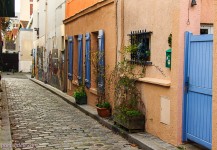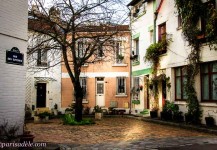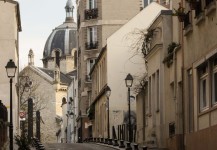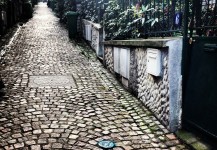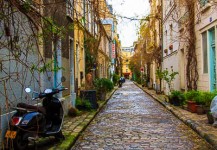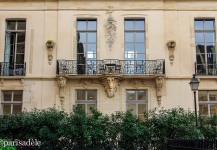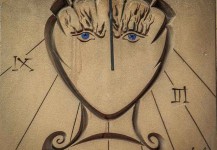Passage du Prado
Different to the ornate high end passageways that can be found in the 2nd arrondissement, Passage du Prado is unlike any of the others.
It is doubtful that you will come across a tourist whilst visiting this ancient arcade, instead, you will find the local inhabitants going about their daily business.
Only two covered passageways remain in the 10th arrondissement; Passage Brady and this one.
I like to call Passage du Prado unique, instead of grungy or seedy which are words usually used to describe this ancient covered passageway.
Although the passageway was created in 1785, it wasn’t until 140 years later, in 1925 that the glass roof was installed.
Approximately 150 covered passageways graced the streets of Paris for the well heeled shopper of the 1920’s but only 20 or so managed to survive after Baron Haussmann’s renovation of Paris.
Originally, this passage was called Bois de Boulogne after the public balls that were held here but later re-named; Passage du Prado.
Rarely mentioned in travel guides and blogs perhaps because it is a poor cousin to the more elaborate passageways in the 2nd arrondissement, Passage du Prado is considered a bit of an embarrassment.
However, around the time this passage was built, the area was considered one of the most upmarket areas of Paris.
The entrances of the passage open on to, what was then, the distinguished Boulevard Saint-Denis and Rue Faubourg Saint-Denis, with a stone’s throw from one of the main doors to Paris; Porte Saint-Denis, (pictured above) the triumphal arch, commissioned by Louis XIV to commemorate his victories on the Rhine and Franche-Comté.
Later this area fell out of fashion with the onset of the department store and so too, did the covered passageways. The decline in property values made it affordable for new immigrants to Paris and a distinctive new atmosphere resulted.
The passage is home to a hotel, clothing repairers, internet shops and clothing stores but predominately, nail and hairdressing salons.
If you are up for it, you can join the long lines to have your hair expertly coiffured by the talented French African hair stylists.
This short passage, measuring 120 metres in length, is divided into two sections by a central domed glass ceiling and is a nice surprise when you reach the centre of the passageway.
Apparently, the rotunda was the only covered section of the passage until the full length roofs were installed later.
It may not be the prettiest passageway in Paris but who knows what will happen next? The surrounding multicultural area is becoming trendier by the minute, as the bobo’s (bourgeois bohémien) move in. Perhaps one day it will see another face-lift and add to Passage du Prado’s long history.
A FEW TIPS AND TRICKS WHILST YOU ARE IN THE AREA:
Don’t be surprised or alarmed if you are approached by touts at the nearby Hector Guimard designed metro entrance of Chateau d’eau.
The amount of hairdressing salons in the area make competition fierce and they are simply trying to encourage you to accept a discount voucher for the salon they tout for.
A simple and polite ‘non merci’ will usually be enough for them to move on to the next person.
A 450 metre walk along Boulevard Poissonnière from Porte Saint-Denis (MAP) you will find theatres, cafés and the heritage listed Art Deco Le Grand Rex Cinema.
A 230 metre stroll up Rue du Faubourg Saint-Denis opposite Passage Reilhac you will find the open air passage of Cour des Petites Ecuries (MAP) lined with restaurants and the historic; Brasserie Flo.
A 300 metre walk down Boulevard Saint-Denis, next to another triumphal arch; Porte Saint-Martin, and under the Theatre de la Renaissance, you can find the casual and amiable Bistrot Renaissance which serves up some very nice food in its zinc bar. (MAP).
Although poor Passage du Prado doesn’t get a good rap, it is worth a visit, not only to the passage but the surrounding area to perhaps discover another of side of Paris that you may not have encountered before and where the hip Parisian bourgeois-bohème or Bobos, as they are referred to in French, call home.
If you have found this information interesting or useful, please leave a comment or follow me on facebook for daily tips, photos and anecdotes, your feedback encourages me to keep this site up to date. Let’s be friends. Merci!
Paris Adèle’s Information Necéssaire:
Passage du Prado
has two entrances:
18 Boulevard Saint-Denis (pictured right)
Paris 75010 – MAP
12 Rue Faubourg Saint-Denis
Paris 75010 – MAP
Opening Hours:
Monday – Saturday 8am – 8pm
Nearest Metro:
Strasbourg-Saint Denis
Bistrot Renaissance
19 Rue René Boulanger
Paris 75010
Phone: +33 1 42 06 05 27
Opening Hours:
Monday – Sunday 8am – 2am
There are many wonders waiting to be explored in the eclectic and almost tourist free 10th arrondissement near Passage du Prado. If you want to get out of the tourist hub and explore Paris, Click on the post below if only to see the myriad of photos I took while exploring the surrounding area:
It is quite ironic that when I decided to abandon my little walking tour today, I managed to get slightly lost and yet at the same time, I gave four people directions along the way. Am I an oxymoron? So how does that work, that I am lost and still able to give other people directions. It confuses …
Also nearby, the unique, one of a kind Sentier metro entrance :
- Sentier MétroThe unique and striking blue and red signage of Sentier Métro, suspended from a spectacular façade on Rue Réaumur is the only surviving sign of two ever produced.
Discover more Passageways in Paris and my Off The Beaten Path Secrets in Paris by selecting a category below
- Le Passage des PrincesAmber lamps, giving off a warm, golden glow, with a beautiful glass ceiling, the entire passageway is dedicated to toys.
- Passage VerdeauExplore antiques, rare books and vintage postcards beneath the elegant, neoclassical, glass ceiling, then continue over the road to Passage Jouffroy.
- Passage JouffroySift through old books at the famous bookstore; Librairie Paul Vulin as you walk upon geometric black, white and grey tiles and discover the quaint Hotel Chopin.
- Passage des PanoramasBuilt in 1799 and inspired by the Oriental Souks, Passage des Panoramas is one of the oldest passageways in the world.
- Passage du CaireA unique façade, a magnificent glass ceiling, 360 metres in length, Passage du Caire is the oldest and longest Passage in Paris
- Passage du Grand CerfNatural light drenches this elegant passageway from its 12 metre high glass ceiling with unique boutiques.
- Passage du PradoRarely mentioned in travel guides, with not a tourist in sight, this unique passage was once in the heart of fashionable Paris.
- Passage du Bourg l’AbbéSubtle and elegant pastel interior, muted by natural light from the unusual curved glass ceiling.
- Belle Époque BrothelsLavish brothels dotted around Paris during the Belle Epoque were easily identifiable, some relics exist today, if you know what to look for.
- Square de MontsourisA hidden jewel, begging to be discovered. Eclectic maisons wrapped in greenery, unseen by most tourists to Paris.
- Secret Garden Hôpital Hôtel-DieuA secret garden in an unusual location, right in the centre of Paris that thousands of tourists pass by each day without knowing it exists.
- La GalcanteVintage periodicals and books fill this small quirky, off the beaten path shop in a secluded courtyard where you may find the perfect Parisian souvenir.
- Lavirotte Building and Square RappExquisite Art Nouveau building with one of the most beautiful doors in Paris & a tiny square that offers a stunning view of the Eiffel Tower.
- Passage de l’AncreWho would know a delightful, tranquil little piece of paradise could be hidden away behind an unassuming crooked doorway in the heart of Paris.
- Rue CrémieuxA tiny paved street, that oozes charm, lined with pretty colourful houses that will take your breath away, still one of Paris' best kept secrets.
- Musée des Arts ForainsTransport yourself back in time. Ride spectacular antique carousels, play ancient fair-ground games and admire colourful memorabilia.
- Villa Olivier-MétraPretty cottages with colourful shutters line this serene leafy path with quaint personal touches added by residents who have a playful sense of humour.
- Bibliothèque Sainte-GenevièveA remarkable and historic reading room with its spectacular ceiling, books lining the vast long walls and rows of green reading lamps.
- St. Sergius Orthodox Theological InstituteHidden away on a leafy hill is the oldest Russian Orthodox Theological Institute in Western Europe.
- Restaurant Foyer de la MadeleineLurking deep in the cellars of L’église Sainte-Marie-Madeleine is one of Paris' best kept secrets, Restaurant Foyer de la Madeleine.
- An Angel in ParisSoaring high above, with it's delicate wings nestled under a fourth floor balcony and yet remarkably this rare Paris secret often goes unnoticed.
- Bibliothèque RichelieuMillions of books line the walls of this historic library under monumental ceilings and finally, it is open to the public.
- The Secret PassageThis lush and adorably sweet top secret passageway is a pure delight. Let me show you where to find it and how to gain entry. But sssh ... it's our secret.
- Passage BoudinCreeping vines, colourful flower boxes and an unusual semi-circular building that would be more at home in the Mediterranean is just some things you will find.
- Cité FloraleA secret micro village hidden away, in a small pocket, off the beaten path in the 13th arrondissement of Paris. Discover why it is called the Floral City.
- La Butte aux CaillesA secret hideway with cobbled streets, a sweet village square, interesting street art and friendly, affordable cafés, tucked away in the 13th arrondissement.
- Rue de MouzaïaOff the beaten path, Rue de Mouzaia will make you feel blessed that you discovered this secret hideaway and it’s surrounds in the 19th arrondissement.
- Rue des ThermopyleApart from locals taking a short-cut, or Parisians on a quiet stroll, what you will find here is a wisteria filled, rustic cobbled pathway.
- Square Saint-Gilles Grand VeneurHidden away behind the Hôtel du Grand Veneur in the Marais is a little known secret square with a surprising artistic connection.
- Salvador Dali SundialMany people pass this hidden gem by Salvador Dali tucked away on the Left Bank of Paris unaware that they only need to look up.

